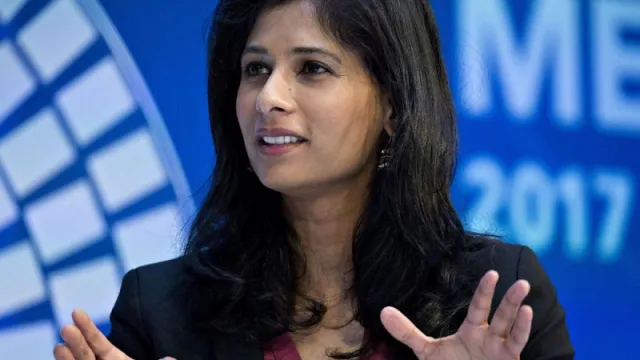Delta variant chokes global economic recovery — IMF

Delta variant chokes global economic recovery — IMF
The highly transmissible Covid-19 Delta variant as well as woes bedeviling global supply chain are threatening to hold back economic recovery across the world, the latest report from the International Monetary Fund (IMF) warns.
Whereas the overall growth is projected to hit 5.9 per cent this year, huge fault lines threaten to further widen the gap between the rich and poor countries post Covid.
The scenario is exacerbated by the ongoing unequal access to lifesaving vaccines to millions of poor populations, further aggravating the current economic disparities.
The IMF report reveals that an estimated 96 per cent of populations in the poor countries remain unvaccinated even as those nations grapple with hunger, rising poverty and runaway debt.
At the moment, about 60 per cent of the population in advanced economies are fully vaccinated and some are now receiving booster shots.
Read also: Dande serves up yet another sucker punch
Further, poor countries are faced with rising number of jobless people, especially the women, a reality that is backpedaling the gains made in empowering women in recent years.
Food prices have increased the most in low‑income countries where food insecurity is most acute, adding to the burdens of poorer households, and raising the risk of social unrest.
Across the developed world such as Europe and the US, challenges such as lack of workers, supply chain bottlenecks threaten to slow economic recovery, IMF notes.
"Pandemic outbreaks and climate disruptions have resulted in shortages of key inputs and lowered manufacturing activity in several countries," said Ms Gita Gopinath, the Economic Counsellor and Director of the Research Department at the IMF.
Fears of rising inflation—even if likely to be temporary—are on the rise, as prices surge for food, medicine and fuel, as well as automobiles.
To help counter the sluggish growth, the IMF has called on vaccine manufacturers in the developed world to support the expansion of regional production of COVID‑19 vaccines in developing countries through financing and technology transfers.
Another urgent global priority is the need to slow the rise in global temperatures and contain ongoing adverse effects of climate change, a move that will require ambitious commitments to reduce greenhouse gas emissions at the upcoming United Nations Climate Change Conference.



